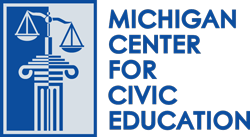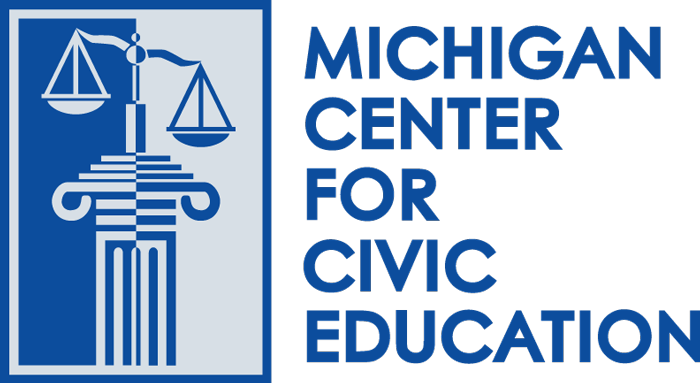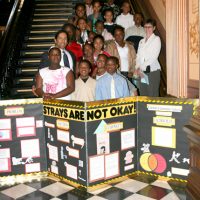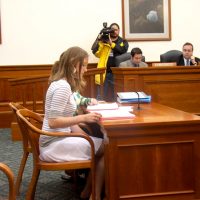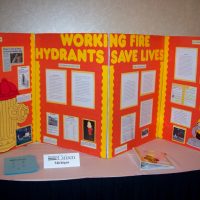Project Citizen Research Program – Cohort 1 Celebration
Visit the Region 3 Project Citizen Summer Institute Hub
Teachers! Want to help advance civic education research and earn a stipend? Check out the FAQs to learn more about participating in the Project Citizen Research Program as a control teacher.
Control Teacher Application Link
Ten (10) states are eligible to join in the fun and learning. Teachers from Michigan, Ohio, Illinois, Wisconsin, Kentucky, Iowa, Missouri, Indiana, West Virginia, and Minnesota are welcomed.
FAQ: https://bit.ly/ProjectCitizen2020FAQ
What is Project Citizen?
Project Citizen is a program for upper elementary, middle, secondary, post-secondary students, and youth organizations, that promotes competent and responsible participation in local and state government. Students work together to identify a problem, study policy issues related to the problem, develop a solution to the problem, and create an action plan for implementing their policy. In a culminating activity, students present in a simulated legislative hearing, demonstrating their knowledge and understanding of how public policy is formulated.

What is the Project Citizen Research Project and how can I get involved?
MCCE will be conducting a YEAR LONG supported professional learning series beginning summer 2020.
Teachers from these ten states are eligible to apply:
- Michigan
- Ohio
- Illinois
- Wisconsin
- Kentucky
- Iowa
- Missouri
- Indiana
- West Virginia
- Minnesota
Participating will provide critical foundational learning to bring Project Citizen to life in the classroom. Participants will receive content from public policy experts; connections with local public policy makers; and proven and effective teaching strategies.
What will I learn?
The Project Citizen Curriculum is anchored in public policy knowledge. Students discover the fluidity of public policy, who the change agents are, and how to appeal for meaningful positive community change.
Project Citizen is divided into instructional areas and four (4) presentation areas. Each area of study requires collaboration, consensus, and situational awareness. The areas of instruction include:
1. Identifying problems of concern to public policy. Related content, skills, and dispositions emphasized include:
- Explore what public policy is and is not
- Explore shared valued and controversy
- Survey of issues facing community (with an emphasis on neighborhood, school, city, state)
- Explore norms of collaboration including listening
- Increase awareness and empathy
- Focus on social and emotional learning
- Constitutional and legal analysis
- Listening, curiosity, and questioning
2. Selecting a problem or problems for the class to study. Related content, skills, and dispositions emphasized include:
- Discussion of multiple viewpoints
- Consensus building
- Setting aside differences for common goals
- Empathy
- Media and information literacy
- Structured iteration
3. Gathering information on the problem the class chooses to study. Related content, skills, and dispositions emphasized include:
- Human centered design and design thinking
- Journalism
- Critical thinking
- Data Literacy
- Media and Information Literacy
- Statistics, research, and design
4. Developing a portfolio to present the research. Related content, skills, and dispositions emphasized include:
- Effective public policy and decision making
- Iterative learning – taking feedback
- Technology and communication
- Assessing a portfolio
- Listening, questioning, and curiosity
5. Presenting a portfolio in a simulated public hearing. Related content, skills, and dispositions emphasized include:
- Advocacy
- Performance
- Public speaking
- Persuasion
- Listening, questioning, and curiosity
6. Reflecting on the experience. Related content, skills, and dispositions emphasized include:
- Introspection
- Learning through iteration
- Norms of collaboration
- Social and emotional learning
- Artifact presentation, assessment, and proposal analysis
Teachers who attend and implement Project Citizen will receive:
- A FREE classroom set of materials;
- A stipend for completing the training upon completion of the professional learning, assessments, and participation in the showcase;
- Exploration and practice with processes and protocols to address controversial topics in the classroom;
- Ongoing instructional and curricular support;
- SCECH credits; and
- A great community of teachers;
Learn more about how to involve your class in Project Citizen, Contact Us.
